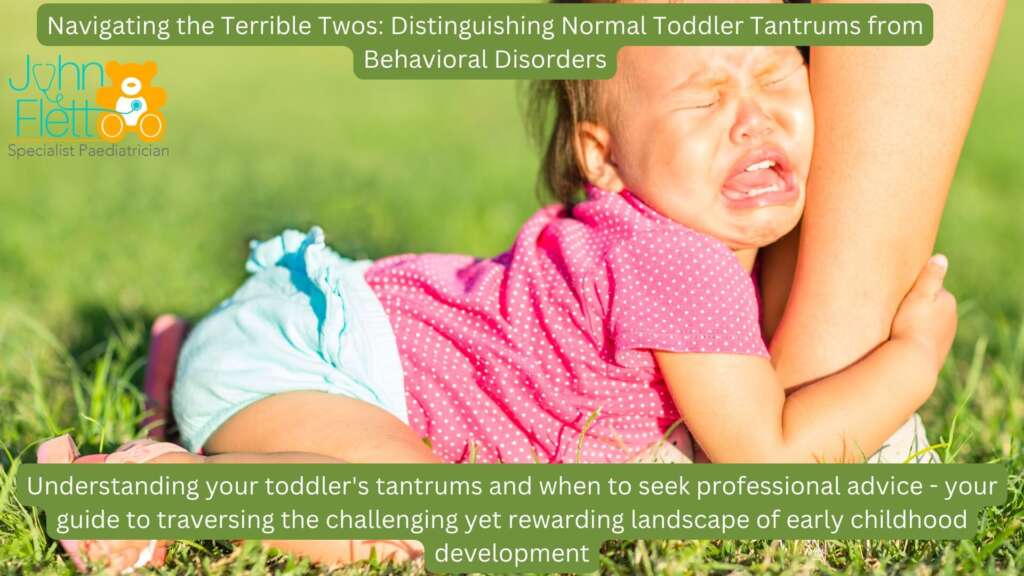Toddler Tantrums or a Behavioural Disorder: A Guide for Parents

Parenting is a journey of joy, love, and, at times, a fair share of worry. As your child enters the toddler years, they begin to explore their environment and express their individuality, often leading to what many terms the “terrible twos.” This phase is typically characterized by tantrums, defiance, and mood swings. However, how can parents distinguish between standard toddler behaviour and signs of a behavioural disorder? This article provides a comprehensive guide to help you decide when to approach a child behaviour specialist like Dr. Flett.
Understanding Normal Toddler Behavior
Toddlers are naturally curious and energetic, and their new-found autonomy often leads to them pushing boundaries as they learn about their world. It’s normal for them to throw tantrums, argue, and be stubborn. These behaviours are often short-lived and tend to subside as the child learns to communicate more effectively and gains a better understanding of their environment.
When to Be Concerned
However, there are instances when these behaviours could indicate a potential behavioural disorder. Here are some signs to look out for:
- Intensity: While tantrums are common, if your child’s tantrums are extremely intense and prolonged, it might be cause for concern.
- Frequency: Toddlers are likely to have tantrums, but if they occur more frequently than seems typical for their age, it could indicate a problem.
- Disruptive Behavior: If your child’s behaviour is consistently disruptive to the point of affecting family life, their education, or their interaction with peers, it may be a sign of a behavioural disorder.
- Lack of Social Interaction: While toddlers might be shy or reserved, a complete lack of interest in social interactions could suggest a problem.
- Difficulty with Transitions: All children can struggle with changes to routine, but extreme difficulty with transitions could signal an issue.
Potential Behavioral Disorders
Two of the most common behavioural disorders seen in young children are Oppositional Defiant Disorder (ODD) and Attention-Deficit/Hyperactivity Disorder (ADHD).
ODD is characterized by a pattern of angry or irritable mood, argumentative/defiant behaviour, or vindictiveness lasting at least six months. Kids with ODD may frequently lose their temper, argue with adults, refuse to comply with rules, deliberately annoy others, and display an angry or resentful attitude.
ADHD, on the other hand, is a neurodevelopmental disorder characterized by persistent patterns of inattention, hyperactivity, and impulsivity. Toddlers with ADHD may appear to be unable to sit still, struggle to play quietly, talk excessively, and have difficulty following instructions.
The Role of a Child Behavior Specialist
If you suspect your toddler might have a behavioral disorder, it’s crucial to seek professional help. A child behaviour specialist like Dr. Flett can help evaluate your child’s behaviour and determine whether it’s within the range of normal development or suggestive of a behavioural disorder. These professionals can also provide you with strategies and interventions to manage your child’s behaviour and improve their quality of life.
Early Intervention Is Key
Remember, early intervention is vital. If your child does have a behavioural disorder, getting help as soon as possible can make a significant difference in their development and long-term success. Don’t hesitate to reach out to your paediatrician or a child behaviour specialist if you’re concerned. Parenting is a challenging journey, but you’re not alone. There is support and help available for both you and your child.
Remember, every child is unique and develops at their own pace. So, while it’s important to be aware of potential behavioural


Responses